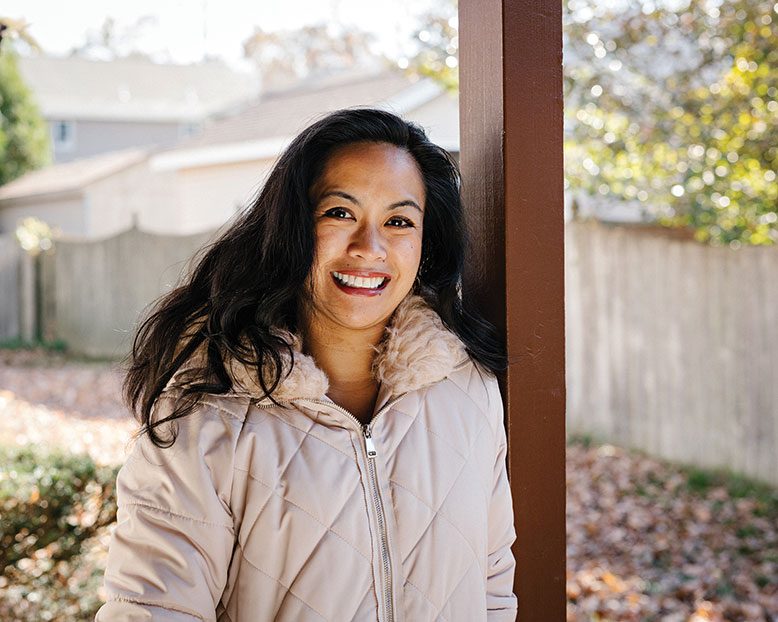
At home in the Bergen County borough of Emerson, Venessa Manzano speaks both Tagalog and English to her children, reads them Filipino books, and has an app on her phone with Filipino music and words.
These are the values her parents instilled in her: Make your family a priority, and never forget your Filipino roots.
“Growing up, my dad would always say, ‘I gave up what I had in the Philippines to come here and provide for my future family,’” Manzano recalls. At the time, he also provided for his mother and sisters, who stayed behind in the Philippines. “Now that he’s retired,” says Manzano, “he always talks about how his greatest achievement in life is his family and seeing how we’ve succeeded.”
Much of Manzano’s life’s work has focused on preserving Filipino culture. As a freshman physical therapy student at Northeastern University in Boston, she helped start a Filipino student organization. After earning a master’s degree in public health from Boston University, she volunteered for several nonprofits that serve the Filipino community. Last May, she completed another master’s, in nonprofit management from Columbia University, to help her advance her passion project: the Filipino School of New York and New Jersey. Manzano also serves as director of development in foundation relations at Columbia University Medical Center.
Manzano founded the Filipino School in 2008, after she had moved to Jersey City. The nonprofit focuses on keeping Filipino traditions and history alive. It primarily serves Bergen and Hudson counties, which account for about one third of New Jersey’s Filipino population. According to the U.S. Census Bureau’s 2016 population estimates, of the 120,100 Filipino residents in New Jersey, about 20,700 live in Bergen County and 20,100 in Hudson County.
Manzano’s parents, Ben and Tessie, came to America in the early 1970s. Ben was 25 and Tessie 23 when they left their home in Silang, a small town on the island of Luzon, for a military base in Hawaii. Ben enlisted in the U.S. Coast Guard and became a citizen under an agreement between the two countries.
A few years later, Venessa was born. Her father’s Coast Guard career led the family around the United States—her brother and sister were born along the way—before they settled in Randolph, Massachusetts. To stay culturally connected, they joined a Filipino school, where Manzano studied language, cooking and folk dancing. Later, she would draw on her experiences in the program to inform her own Filipino school.
Currently, about 100 children and adults are enrolled in the programs offered through the school, where Manzano serves as director. One class teaches folk dances to students ages 5–12. Another introduces adults to Tagalog, the national language of the Philippines. Workshops include Baybayin, the ancient Filipino writing system, and martial arts.
Beyond cultural education, Manzano, 39, hopes Filipino-Americans learn to embrace their roots. “This population faces questions of identity,” she says. “What does it mean to be a Filipino in America? What role do I play in my community? How can I be successful?”
Manzano sees her role as a cultural advocate for both the Philippines and America.“We teach love of country and love of the community—outside of just Filipino groups,” says Manzano. “In most Asian cultures, the stereotype is that we’re very soft-spoken and we don’t say much. Americans tend to be more open, honest, and speak their minds, so why not do that?”
Last January, Manzano and her husband, Mark Habana, took their children, Xavier, 7, Natalie, 4, and Julian, 3, to the Philippines for the first time. “I still have this dream of going back and living there,” says Manzano. “For now, my involvement in the community and the school continue to connect me to the culture.”

Hi!
How can i reach Ms. Manzano?